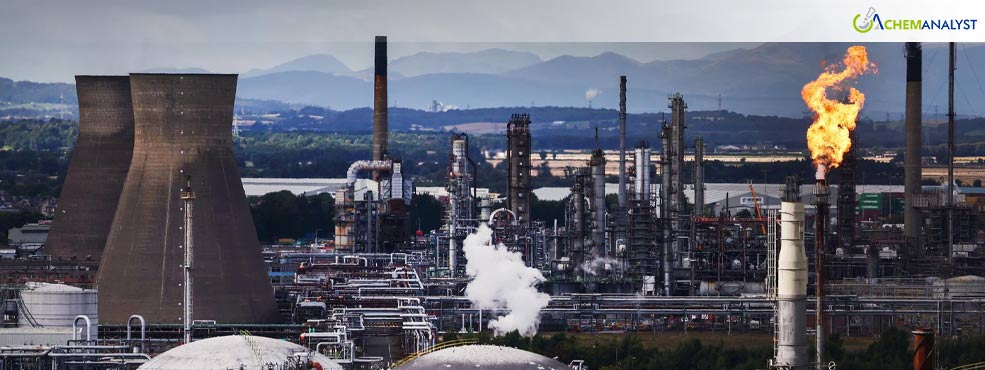Welcome To ChemAnalyst

The Grangemouth chemicals plant in Scotland saw a significant increase in losses last year, with figures doubling due to rising gas prices and decreased demand, according to the several media reports. Ineos, the petrochemical company that operates the oil terminal, refinery, and chemical plant on the Firth of Forth, reported a pre-tax loss of €688 million for the year ending December 31, compared to a €298 million loss the previous year. The company's financial statements indicated a decline in market demand, attributing this to weakened consumer confidence. Additionally, Ineos faced challenges from cheaper imports flooding the European market and its exposure to volatile natural gas prices.
The Grangemouth facility is responsible for producing a diverse array of chemicals, including ethylene, propylene, and synthetic ethanol, all crucial for various manufacturing and industrial applications. However, the outlook for the refinery remains bleak. Recently, Petroineos, a joint venture between Sir Jim Ratcliffe’s Ineos and PetroChina, announced plans to close the refinery next year, which accounts for approximately 14% of the UK's refining capacity. This closure is expected to result in the loss of 400 jobs, raising concerns for the local workforce and economy.
Speculation surrounding a potential buyer for the refinery has faded amid skepticism regarding the authenticity of any interested parties. Consequently, Petroineos has decided to repurpose the site into an import and distribution fuel terminal. Importantly, the decision to close the refinery will not directly impact the petrochemical operations at Grangemouth, which continue to be a significant part of Ineos's portfolio.
The current landscape poses considerable challenges for the Grangemouth site as it navigates the complex interplay of market dynamics, energy prices, and consumer behavior. With Ineos facing external pressures and the broader economic environment contributing to its struggles, the future of the plant remains uncertain. The transition to a fuel import and distribution hub may provide some continuity, but the loss of refining capacity could have far-reaching implications for the UK’s energy sector.
As the situation unfolds, stakeholders will closely monitor developments at Grangemouth, particularly regarding the broader impacts on the petrochemical industry and local employment. The challenges posed by rising gas prices and changing market conditions underscore the need for strategic adjustments in response to evolving consumer demands and competitive pressures in the European market.
In conclusion, the Grangemouth chemicals plant's doubling losses reflect broader trends in the energy and petrochemical sectors, marked by fluctuating gas prices and weakened demand. As Ineos navigates these challenges, the future of the facility will depend on its ability to adapt and respond effectively to a rapidly changing market landscape.
We use cookies to deliver the best possible experience on our website. To learn more, visit our Privacy Policy. By continuing to use this site or by closing this box, you consent to our use of cookies. More info.
